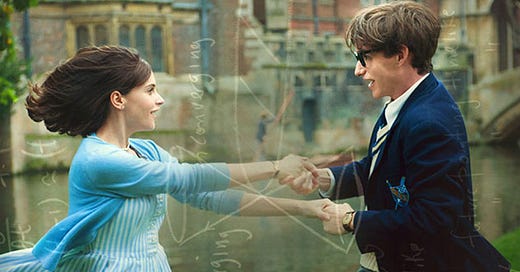The Theory of Everything, directed by James Marsh. Written by Anthony McCarten, based on a book by Jane Hawking. Starring Eddie Redmayne, Felicity Jones, David Thewlis, and Harry Lloyd. Distributed by Focus Features, 2014. Rated PG-13 for some thematic elements and suggestive material. Running time: 123 minutes.
What would you do if your doctor told you …
Keep reading with a 7-day free trial
Subscribe to The Objective Standard to keep reading this post and get 7 days of free access to the full post archives.




